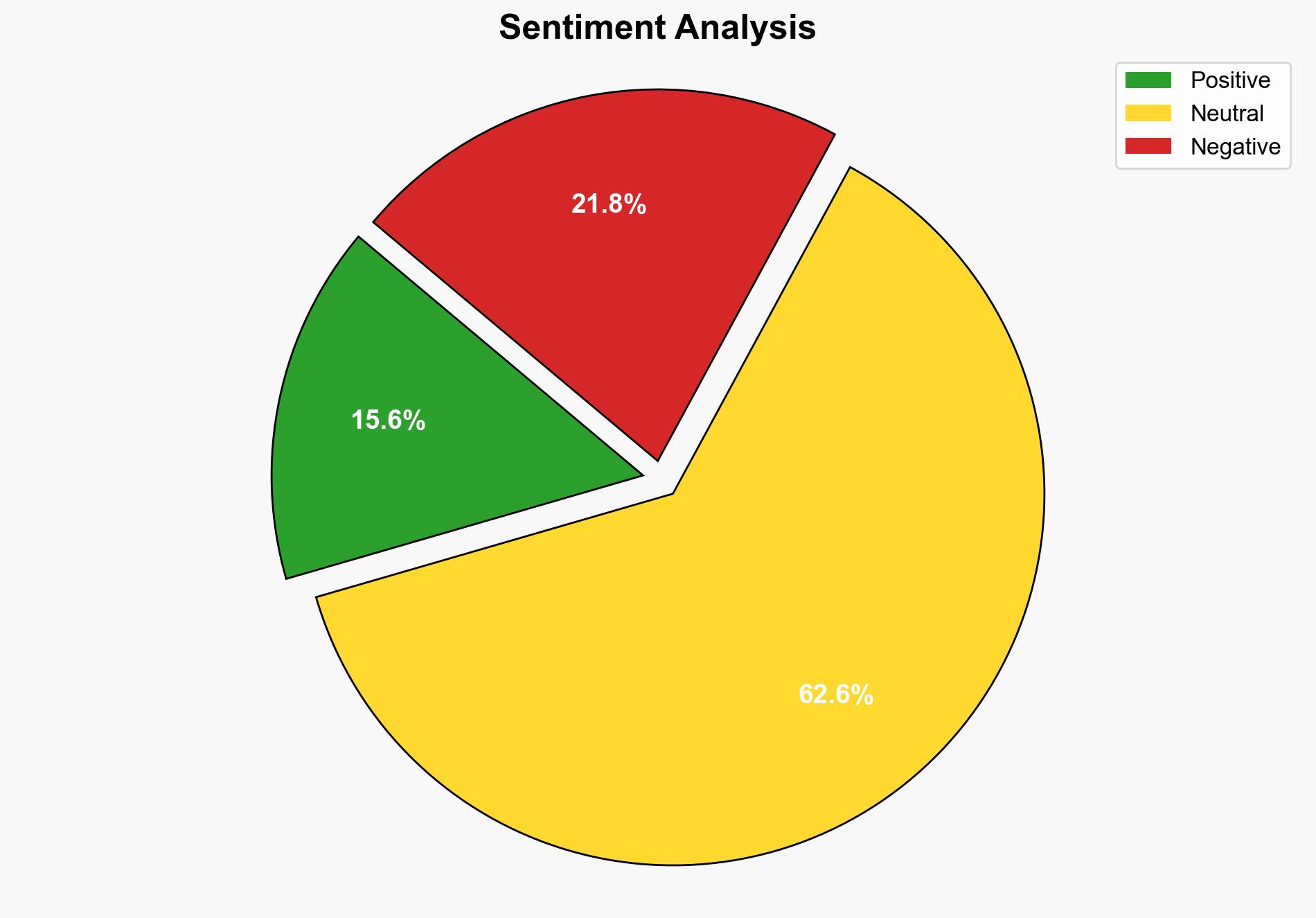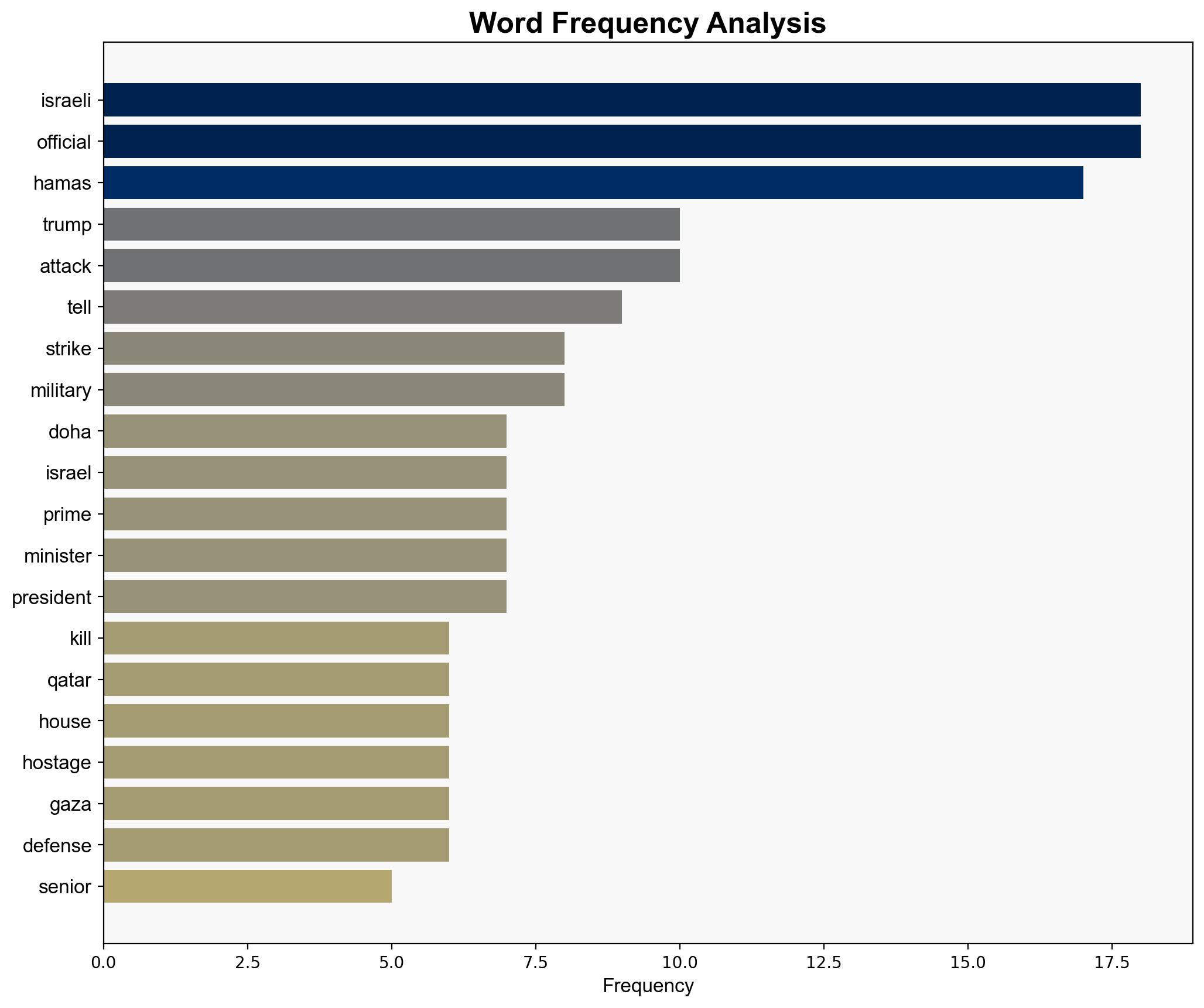What Happens to Diplomacy When You Try to Kill the Negotiators – The Atlantic
Published on: 2025-09-11
Intelligence Report: What Happens to Diplomacy When You Try to Kill the Negotiators – The Atlantic
1. BLUF (Bottom Line Up Front)
The most supported hypothesis is that the Israeli strike in Doha was a calculated risk to disrupt Hamas leadership and pressure negotiations, despite potential diplomatic fallout. Confidence level is moderate due to the complexity of the geopolitical environment and the potential for miscalculation. Recommended action is to engage in multilateral diplomatic efforts to stabilize the region and prevent further escalation.
2. Competing Hypotheses
1. **Hypothesis A**: The Israeli strike was an intentional attempt to eliminate key Hamas leaders to weaken their negotiating position and force a more favorable outcome for Israel.
2. **Hypothesis B**: The strike was a miscalculation or intelligence failure, resulting in unintended diplomatic consequences and increased regional instability.
3. Key Assumptions and Red Flags
– **Assumptions for Hypothesis A**: Israel believes that eliminating Hamas leaders will lead to a more favorable negotiation outcome. Assumes Israel is willing to risk diplomatic fallout for strategic gains.
– **Assumptions for Hypothesis B**: The strike was based on faulty intelligence or miscommunication. Assumes Israel did not anticipate the diplomatic backlash.
– **Red Flags**: Lack of clear evidence on the intended target of the strike. Contradictory statements from Israeli officials and potential bias in source reporting.
4. Implications and Strategic Risks
– **Geopolitical Risks**: Potential for increased tensions between Israel and Qatar, complicating future negotiations.
– **Diplomatic Risks**: Strain on U.S.-Israel relations if perceived as undermining U.S. diplomatic efforts.
– **Escalation Scenarios**: Possible retaliatory actions by Hamas or its allies, leading to further conflict in the region.
5. Recommendations and Outlook
- Engage in multilateral diplomatic efforts involving key regional players to de-escalate tensions.
- Enhance intelligence-sharing mechanisms to prevent future miscalculations.
- Scenario Projections:
- **Best Case**: Successful negotiation leading to a ceasefire and release of hostages.
- **Worst Case**: Escalation into broader regional conflict involving multiple state actors.
- **Most Likely**: Prolonged diplomatic stalemate with intermittent violence.
6. Key Individuals and Entities
– Benjamin Netanyahu
– Sheikh Mohammed bin Abdulrahman Al Thani
– Jared Kushner
– Noa App
– Ruby Chen
– Steve Witkoff
7. Thematic Tags
national security threats, counter-terrorism, regional focus, geopolitical conflict





